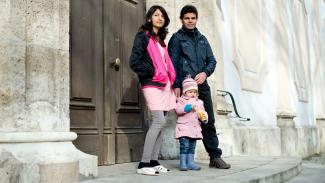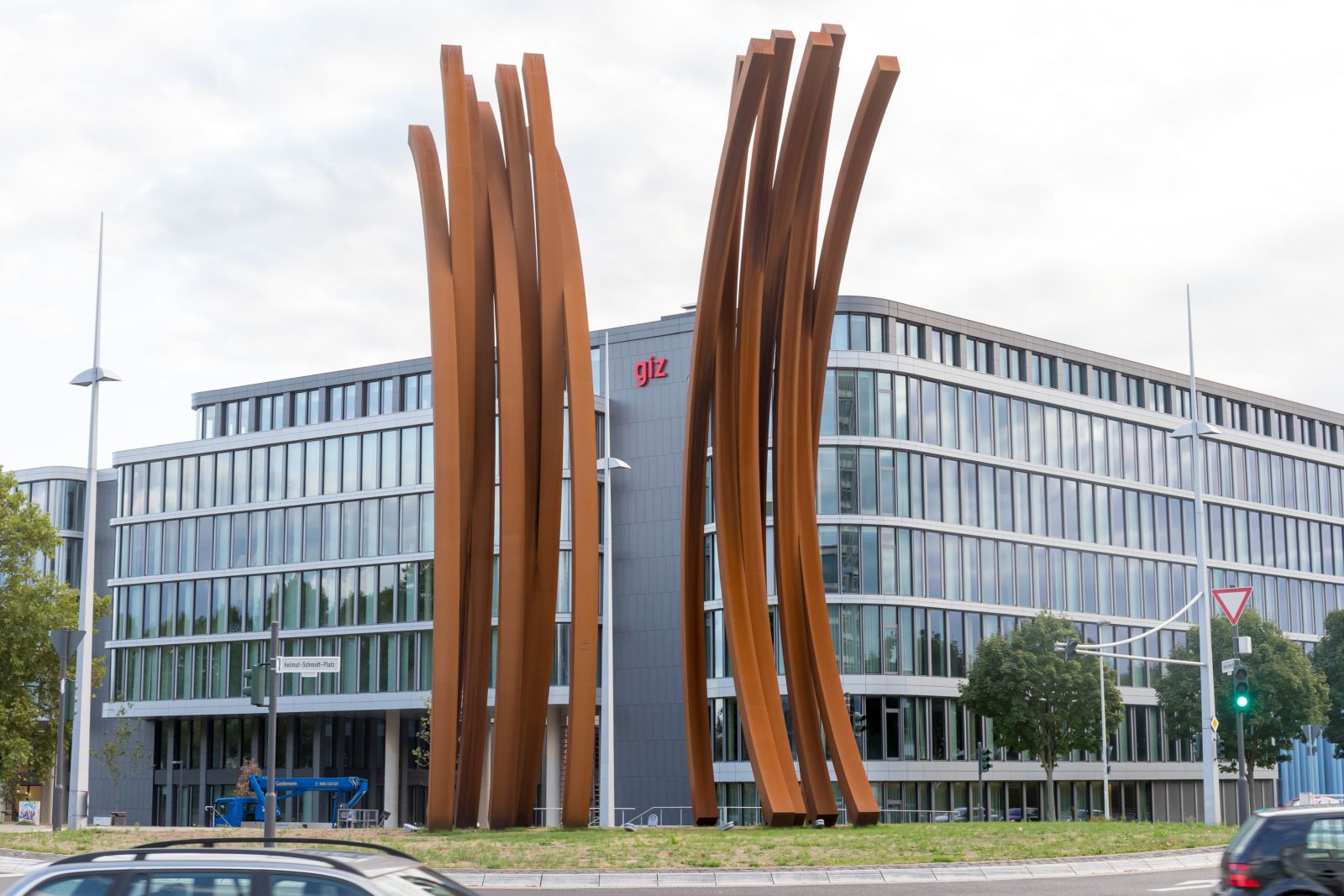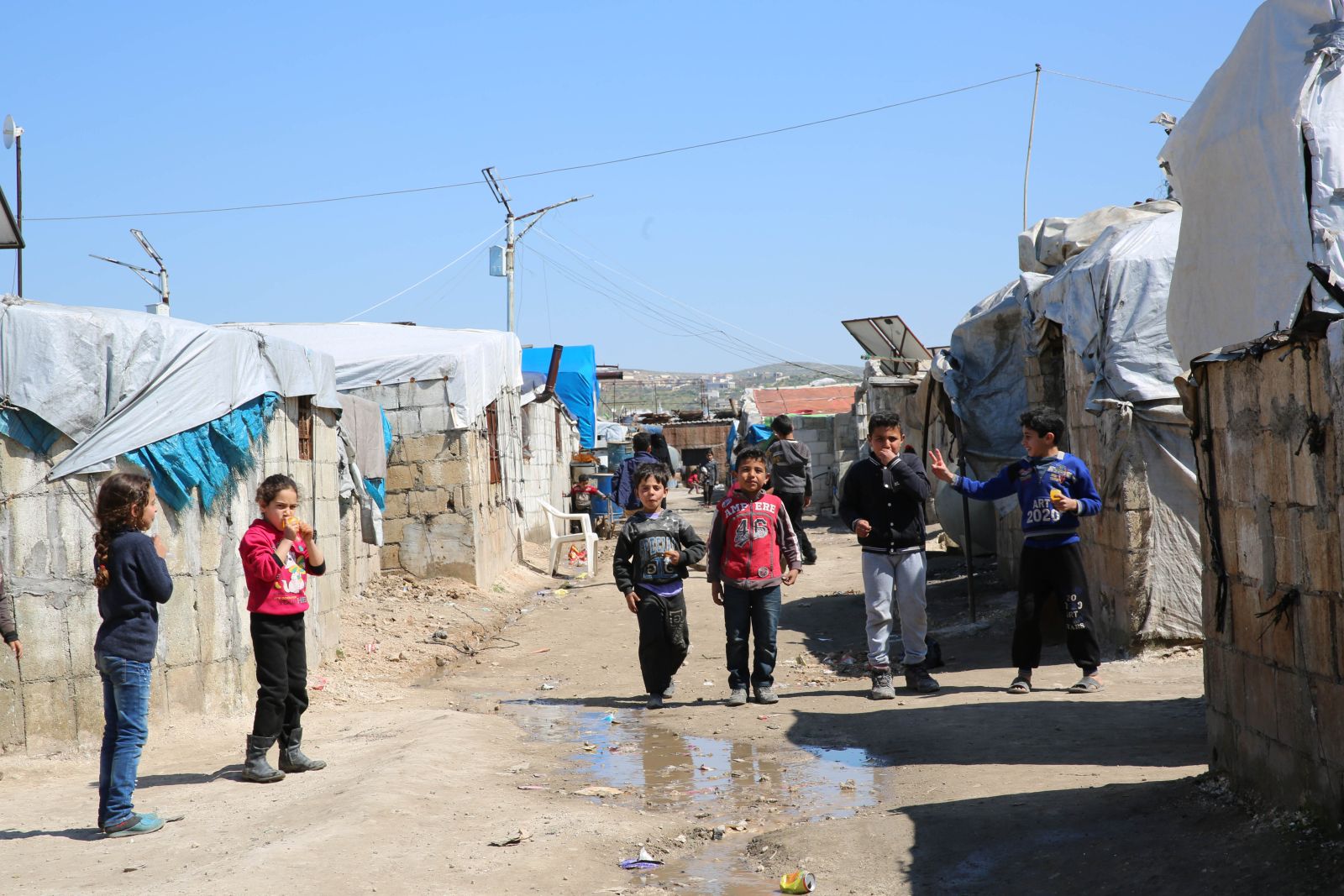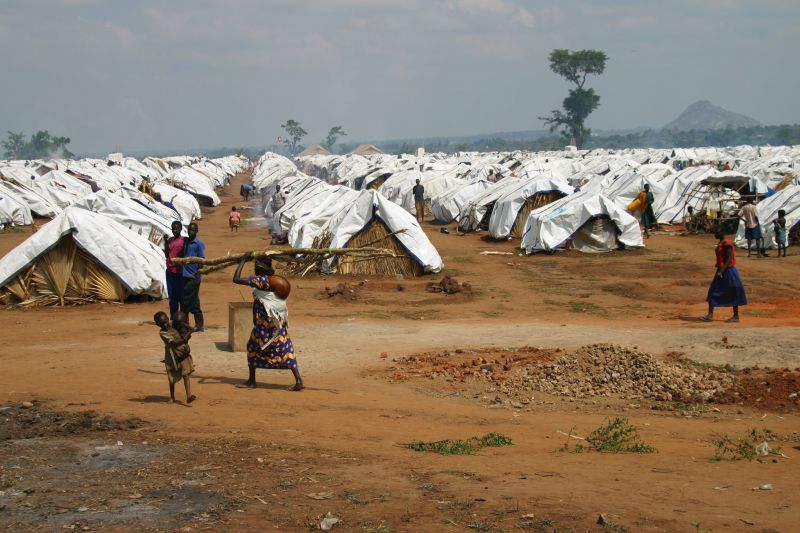Migration
Between worlds

For the vast majority of people, the decision to flee is a very difficult one. They must leave behind the country where they have lived since birth, where they have a sense of belonging and where everything is familiar. The reasons to flee are complex, but most refugees want to escape devastating conflicts or civil wars that have often claimed the lives of loved ones. People depart to save their lives.
In order to make their way from Afghanistan to Germany, refugees need to cover a distance of over 6,000 km. In many cases, families take their children along with them.
One much-chosen route from Afghanistan to Germany leads through Iran and Turkey. The next stage is an unsafe – even perilous – voyage from Turkey to Greece, crossing the Mediterranean Sea in small boats. Many refugees die in the attempt. Those who arrive in Greece undetected continue their trip to Germany, where their new life, in the truest sense of the word, begins.
Arriving in Germany feels like heaven on earth. Everything is clean, well-managed and nice looking. A huge multitude of goods is available at supermarkets. Everything seems to abound. Moreover, the country is at peace. No bombs, no shooting, no tanks, no fighter jets.
Finding an identity
While the young adapt to their new environment fast, their parents usually consider it too foreign and want to preserve their cultural identity. They have trouble learning German, and that is a serious barrier to their integration. Migrant parents normally expect their children to stick to the family’s customs. They do not want their offspring to lose the modes of conduct and culture of their homeland. For instance, many Afghan girls are expected to observe Islamic dress codes, and romantic relationships between girls and boys are prohibited, especially if they involve a partner from a different cultural background. Going to clubs or alcohol consumption are ruled out.
The conflicting expectations spark dilemmas. Many children do not dare to argue with their parents and thus question their authority in regard to norms. Their culture of origin does not tolerate what is considered to be disrespect. Many youngsters apply double standards, often without being entirely conscious of doing so. They accept certain cultural values at home only, and entirely disregard them in the outside world. For example, young Afghan girls leave their homes in modest attire, and then go dancing with peers at night. At some point, the young people no longer know what culture they should feel they belong to.
Yet the feeling of belonging and of finding one’s place in society is essential for every human being. All people have a deep need to be included in social life. They not only want to feel they belong; they want to have their own place and be accepted by society. As most people know from personal experience, it feels devastating to be shut out from a group.
According to Theo Schoenaker, a psychologist, people do not only feel bad in such situations, they also feel stupid. Nearly all children with a history of migration struggle with this phenomenon for many years, even though many of them are experienced in an extraordinary way, possess profound knowledge of two cultures and speak at least two languages.
When this kind of inner turmoil coincides with puberty, which is a difficult period anyway, young people often suffer a serious identity crisis. They lose themselves, in a manner of speaking, and feel alienated. Some become criminals or extremists, while others form their own cultural enclaves.
A third group strongly wants to be accepted by German society. Because of their physical appearance, however, this is difficult even for those who have a German passport and speak German fluently. Some are so desperate to be accepted that they begin to deny their original culture and do what they can to appear to be as German as possible.
Typically, however, people of this last category start becoming interested in their original culture and old country after successfully completing secondary and higher education. At that point, they begin to ask questions about what was going on in the country of their birth when their parents fled. They want to know what the country is like today and how its people are faring.
If possible, they want to visit their country of origin – and when they do so, they find the place is familiar and alien at the same time. Barely anything remains of what they remember or what their parents told them. The war has destroyed everything.
The first trip is often shocking. “Returnees” come to the land of their parents full of expectations, but because they have lived in Germany for so long, the country of their birth is foreign to them. Their German manners and attitudes set them apart from the local people. Often, they are no longer able to speak the national language perfectly.
Yet many of them return after their first trip. Their emotions and roots are too strong to let them go. So they come back for further visits, and each time, they understand the people’s expectations better and cope more easily with the trying circumstances of their old homeland.
Competent development workers
Spending time in their country of origin helps people with dual nationalities to become conscious of their original identity and appreciate it. Once this process is started, the persons concerned become stronger. Knowing two worlds, they can pick and choose the most convincing elements of either culture.
Binational people are ideally suited to return to their countries of origin as development workers or in similar capacities. They are perfect candidates for aid organisations, because they are familiar with the culture of the partner country, speak the national language and quickly find common ground with colleagues and other people who live there. They excel as negotiators, and can thus contribute crucially to the success of projects. If they are deployed for many years, their knowledge and skills is utilised in the long term. They frequently become wanderers between worlds, never really settling down anywhere.
So far, the vast potential of binational people for development cooperation remains largely untapped. One reason is probably that agencies tend to focus on professional qualifications when hiring staff. Binational applicants often perform worse in this regard, especially if they came to Germany at an age when they no longer learned German easily. Many do not have a perfect command of German and English. Moreover, many finish school or university with only average grades because they had to cope with comprehensive curricula in a shorter time than their German peers.
In development cooperation, however, the ability to transfer knowledge is more important than specialisation in some kind of expertise. This is especially so in developing countries where wars have destroyed the infrastructure and reconstruction must begin from scratch.
Some agencies are leading the way. A successful example is the Afghanistan programme which is managed by the Centre for International Migration and Development (CIM) on behalf of Germany’s Foreign Office. CIM is a joint initiative of GIZ and Germany’s job centres. German-Afghans account for roughly half of the staff CIM is seconding to partner institutions in Afghanistan.
David Majed is a German-Afghan who works for the Centre for International Migration and Development (CIM) as a consultant at Afghanistan’s ministry of higher education. Together with Tanja Langer, he wrote the novel “Der Himmel ist ein Taschenspieler” (Heaven is an illusionist), which was published by LangenMüller. He is expressing his personal views in D+C/E+Z. jawad.majed@yahoo.de












